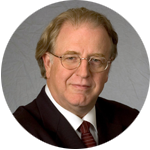
Gene Policinski, inside the First Amendment
Gene Policinski is chief operating officer of the Newseum Institute and senior vice president of the Institute’s First Amendment Center. He can be reached at gpolicinski@newseum.org.
Follow him on Twitter:
@genefac
Sending an “open letter” to President Trump has been in vogue these days.
Social activists, business moguls, media chieftains and political leaders all have penned a multitude of them since the November election. Some offer advice, some raise alarms, some offer praise and some just convey insults.
All well and good – those exchanges and more are in the “free speech and free press” ethos protected by the First Amendment of speaking “truth to power” – even if the response from Trump more often than not has been to tar vigorously any unfavorable messages as “untruth.”
So this moment in history is just too ripe not to join in, but with a twist: Here’s my open letter about our core freedoms of speech, press, assembly, petition and religion … as a note not to the new commander in chief, but to the rest of us — “We, The People.”
For those who reveled in Trump’s oath of office, take a moment to consider that the freedoms of speech and press that he seems to be targeting were in no small way vital to a campaign rooted in reaching out to those who felt marginalized, ignored or even betrayed by both major parties.
Trump’s ongoing “fireside tweets” are both new to American politics and an echo of FDR’s similar mastery of the new medium of his era, radio, to speak directly to voters. He and we need to keep in mind that loosening libel laws to make it easier to sue a reporter also will make it easier to mount a legal challenge to all of us – including Trump – over our online comments.
And then there’s Trump’s biting, emotional indictments of the news media. More than 60 news and free press organizations earlier this week sent a multi-page note to the president and Vice President Pence, asking for a meeting to discuss transparency and press access to their administration.
We, the people, should endorse that call to coverage by our independent “watchdogs on government.” In turn, journalists must take action to reverse a widespread view – 74 percent in the latest State of the First Amendment survey – that the news media is failing to live up to its responsibility to be accurate and unbiased in news reports or to, at the least, be transparent in declaring bias.
Holding government accountable in public for how public policy is made, and how public money is spent, would seem to be a nonpartisan objective on which we can all agree. In that same State of the First Amendment survey, 71 percent of us said that was the case.
We will need to keep in mind as a nation that discussion, dissent, disagreement and debate are the hallmarks of a strong and open system of self-governance – and provide the means for self-correction when this nation goes astray. Let’s consider how rare it is in the world to be able to assemble peaceably without fear of government persecution or prosecution, and to petition the government for change.
In like manner, there might be those who decried the “Women’s March” that followed the Inaugural Parade by one day as divisive. But what a grand example to other nations: Hundreds of thousands of Americans on one day, celebrating the peaceful transition of national power after a heated, closely contested election — only to be followed a single day later, in the same space, by hundreds of thousands of Americans protesting the political particulars of that transfer.
And finally, there’s certainly every reason to fear domestic and international terrorists. But we need to remember that targeting others solely because of their Muslim religious faith not only violates our nation’s unique commitment to respecting all faiths, but resurrects images of a time when unjustified wartime fear and disgraceful ethnic bias led us to intern Japanese Americans at the start if World War II.
More than ever, as we enter this new “Era of Trump,” we should heed the call to duty as citizens expressed in the observation by my late colleague John Seigenthaler that our First Amendment freedoms “are never safe, never secure, but always in the process of being made safe and secure.”
We might disagree – and often do – on how those five core freedoms of the First Amendment apply to any given set of facts.
But we should all stand behind them against any attempt to limit, weaken or ignore them on the basis of the variable political winds, the power of fear – or even the impact of the occasional presidential tweet.
